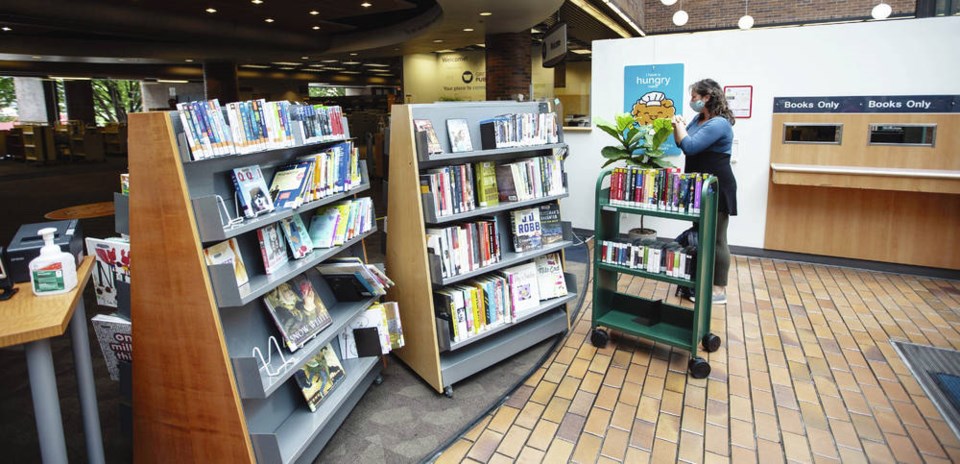There are at least 26 words in the English language ending in “ough” and many are pronounced differently, for example “bough,” “cough,” “dough,” “thought” and 22 more.
Then there’s that old chestnut beloved of teachers of spelling, “ghoti,” which, technically, could be pronounced “fish” (“enough,” “women,” “caution”).
There are many words, such as “conscience,” “indict” and “mortgage,” that are spelled differently from their pronunciation.
English, being an untidy language whose development has been influenced by French, Latin, Greek, German and even Hebrew and Yiddish, is a notoriously difficult language to learn, much less to learn to spell.
That makes it all the more impressive that a nine-year-old Surrey girl will be heading to the Spelling Bee of Canada Championships this month, just two years after immigrating to Canada from India and perfecting her English.
Harbin Kaur, a Grade 4 student at the Khalsa School, Newton campus, won the title last month for best junior speller in B.C., beating out 64 other contenders.
Harbin no doubt hopes to follow in the footsteps of Surrey teen Praneet Singh Arora, 13, who won the Spelling Bee of Canada National Championship, intermediate level, in 2018. His winning words were ostracod (a tiny crustacean) and disreputable (not respectable in appearance or character).
Research by Sanjoy Chakravorty and his colleague Devesh Kapur, at the University of Pennsylvania, and Nirvikar Singh at the University of California-Santa Cruz sheds some light on what surely must be more than a cultural coincidence.
Their research revealed a range of plausible reasons as to why children from some communities have above-average spelling abilities.
Genetic inheritance aside, these children were all voracious readers and came from homes furnished generously with print media — in English.
That makes sense, because while psychologists once believed that children learn to spell by using rote visual memory, they now believe that word knowledge builds systematically on other word knowledge through reading.
Apparently, as children gain exposure to print, practise writing and become even more aware of the sounds in words, they begin to recognize and recall larger orthographic patterns, or “chunks,” and use them to spell other words.
Whenever kids lock in on the letters in books, on signs, on toys and elsewhere, they begin soaking up and analyzing simple visual characteristics of written language, according to writer and researcher Maya Payne Smart, who holds a master of science degree in journalism from Medill School of Journalism at Northwestern University in Illinois.
That’s all well and good, but we will not even begin to delve into the confusion sometimes caused people like this writer, who learned to spell in Australia and is even now confused by the difference between Canadian and American spellings, i.e. “analyse/analyze” or “catalogue/catalog” or “candour/candor” — just a few of many examples of Canadian/American semantic skirmishes.
The question, given that kind of confusion, is whether the ability to spell accurately is still as important as we teachers of English claim. Probably yes … and no. Researchers from the University of Grenoble Alpes asked 536 professional recruiters to evaluate different job application forms and shortlist candidates. They found that poor spelling skills were just as detrimental to a candidate’s chances of being shortlisted as having insufficient work experience.
This isn’t just bad news for applicants. It’s a disaster for companies to be missing out on the best talent because of a fixation on spelling.
But in an age when many kids now write using word-processing programs that include a spell checker, doesn’t that obviate the necessity to learn to spell accurately?
The answer this time is a clear “yes,” with caveats.
While they have obvious advantages in terms of how young folks represent themselves in job applications and personal written communications, spell checkers can’t always be trusted to say what the writer really wants to say.
Quite the contrary, in fact.
Workers whose task it is to update the electronic signs outside a business have been known to come up with such classics as “Please Pay Your Parking Fee Before Existing,” “Executive Bored Room” and, as once appeared on the weather prediction visual behind a newscaster in Kansas City, Missouri: “Warming up today — not ass cold.”
As American syndicated public affairs columnist William Raspberry wrote, “Good English, well spoken and well written, will open more doors than a college degree … bad English will slam doors you don’t even know exist.”
Geoff Johnson is a former superintendent of schools.



